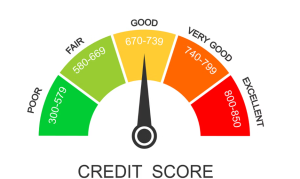Strategies to Give Your Credit a Boost
3 min read
A healthy credit score is a valuable asset that opens doors to financial opportunities. If your credit score is in need of a boost, don’t despair – this article provides a diverse set of strategies to help elevate your credit score. From responsible credit management to proactive measures, these steps can pave the way for a stronger and more favorable credit profile.
Know Your Current Credit Status: Before embarking on the journey to improve your credit, it’s crucial to know where you stand. Obtain your credit reports from major bureaus and review them thoroughly. Understanding the factors affecting your score lays the groundwork for targeted improvement.
Check for Errors and Dispute Inaccuracies: Errors on your credit report can drag down your score. Scrutinize your reports for inaccuracies, such as incorrect account information or unauthorized inquiries. If you find errors, dispute them with the respective credit bureaus to ensure your reports accurately reflect your credit history.
Pay Your Bills on Time, Every Time: Timely payment of bills is one of the most influential factors in determining your credit score. Set up reminders or automatic payments to ensure that all your bills, from credit cards to utility payments, are paid on time. Consistent on-time payments contribute positively to your credit history.
Reduce Credit Card Balances: High credit card balances relative to your credit limits can negatively impact your credit score. Aim to reduce your credit card balances, ideally keeping your credit utilization below 30%. Paying down outstanding balances demonstrates responsible credit management.
Avoid Closing Old Credit Accounts: The length of your credit history is a significant factor in your credit score. Closing old credit accounts can shorten your credit history, potentially impacting your score. Instead of closing accounts, consider keeping them open and using them occasionally to maintain activity.
Diversify Your Credit Mix: Credit scoring models consider the variety of credit accounts you have, including credit cards, installment loans, and mortgages. Having a diverse mix of credit can positively influence your credit score. If you only have credit cards, consider adding an installment loan to your portfolio.
Be Cautious with New Credit Applications: Each time you apply for new credit, a hard inquiry is made on your credit report. Too many inquiries within a short period can negatively impact your score. Be selective about new credit applications and avoid opening multiple accounts in quick succession.
Become an Authorized User: If you have a trusted friend or family member with a positive credit history, consider becoming an authorized user on one of their credit accounts. This can potentially boost your credit score by incorporating their positive credit history into yours.
Negotiate with Creditors for Favorable Terms: If you’re facing financial challenges, don’t hesitate to communicate with your creditors. Some may be willing to negotiate more favorable terms, such as reduced interest rates or a modified repayment plan. Establishing a positive dialogue demonstrates a commitment to resolving financial issues.
Seek Professional Guidance if Needed: If you find it challenging to navigate credit improvement on your own, consider seeking professional guidance. Credit counseling services or credit repair companies can provide insights and strategies tailored to your specific situation. Exercise caution and thoroughly research any service before enlisting their help.
Utilize Credit Score Boosting Programs: Some credit score boosting programs, offered by credit card issuers or financial institutions, provide tools and resources to help improve your credit. These programs often offer educational materials, credit monitoring, and personalized advice to guide you on your credit improvement journey.
Monitor Your Progress Regularly: Improving your credit is a gradual process. Regularly monitor your credit reports and scores to track your progress. Celebrate small victories and stay committed to the strategies that contribute to positive changes in your credit profile.
Conclusion:
Giving your credit a boost is a proactive and empowering journey. By implementing a combination of responsible credit management, strategic actions, and ongoing monitoring, you can elevate your credit score over time. A stronger credit profile not only opens up financial opportunities but also positions you for greater financial stability. Commit to the journey, stay informed, and watch your credit soar to new heights.





